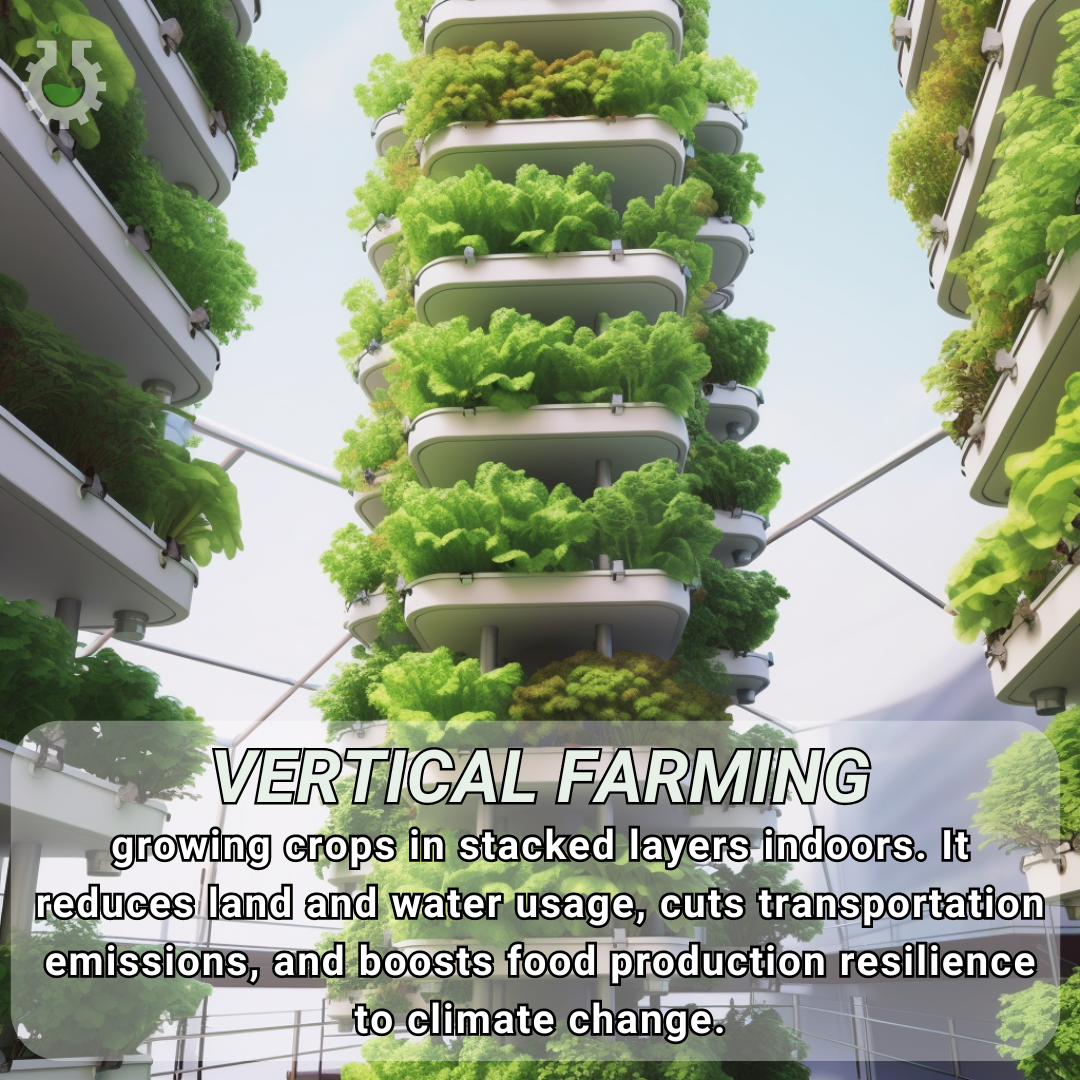April 26, 2024
Climate Change Poster Collection of the Day – Vertical Farming
Book a Demo
Today’s Climate Change Poster Collection highlights Vertical Farming. The escalating issue of climate change is paving the way for an urgent need for resilient, sustainable farming practices to ensure global food security. Over the last three decades, vertical farming has been developed as an innovative and sustainable alternative to conventional farming methods, which are highly susceptible to the drastic impacts of extreme weather events.
Vertical farming is a revolutionary approach that maximizes resource use by growing crops in stacked layers. This not only reduces water usage but also decreases the need for harmful pesticides. Moreover, it has the potential to be self-sufficient with renewable energy sources. The controlled indoor conditions of vertical farming provide an added layer of protection against unpredictable weather conditions caused by climate change. This means such farms can be set up in areas typically deemed unsuitable for agriculture, such as urban locations or arid regions.
Another critical aspect of vertical farming is its heavy reliance on advanced technology. The use of real-time sensors, IoT devices, and big data analytics vastly improves vertical farming’s capabilities. These technologies help in accurately monitoring and optimizing growth conditions, anticipating potential issues, and decreasing labor costs through automation.
However, it’s important to recognize the massive environmental impact of conventional agriculture. This traditional method contributes to a significant 25% of all man-made greenhouse gas emissions, playing a major role in advancing climate change. This, in turn, has serious implications such as causing droughts, disrupting food supply, and triggering severe weather events.
On the other hand, vertical farming presents an effective solution to mitigate greenhouse gas emissions. It drastically reduces the water and land needed for food production, eliminates the need for herbicides, pesticides, and circumvents the need for extensive transportation.
Our innovative Gelponics technology in vertical farming offers a sustainable, low-carbon alternative to traditional farming methods. By opting for this method of farming, you can significantly reduce your carbon footprint and contribute to global sustainable farming efforts.
In conclusion, the future of agriculture lies in embracing innovative, sustainable practices like vertical farming. Through smart utilization of resources and technology, we can grow food efficiently while mitigating the harmful effects of climate change on food security.
Discover an inspiring collection of climate change poster.



